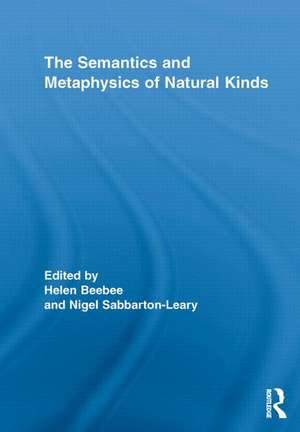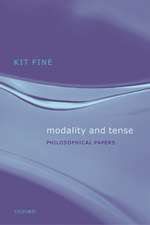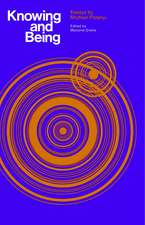The Semantics and Metaphysics of Natural Kinds: Routledge Studies in Metaphysics
Editat de Helen Beebee, Nigel Sabbarton-Learyen Limba Engleză Paperback – 20 apr 2012
| Toate formatele și edițiile | Preț | Express |
|---|---|---|
| Paperback (1) | 483.55 lei 6-8 săpt. | |
| Taylor & Francis – 20 apr 2012 | 483.55 lei 6-8 săpt. | |
| Hardback (1) | 1114.98 lei 6-8 săpt. | |
| Taylor & Francis – 30 apr 2010 | 1114.98 lei 6-8 săpt. |
Din seria Routledge Studies in Metaphysics
-
 Preț: 309.65 lei
Preț: 309.65 lei -
 Preț: 384.59 lei
Preț: 384.59 lei -
 Preț: 310.36 lei
Preț: 310.36 lei - 18%
 Preț: 1000.27 lei
Preț: 1000.27 lei -
 Preț: 313.15 lei
Preț: 313.15 lei -
 Preț: 416.22 lei
Preț: 416.22 lei -
 Preț: 484.47 lei
Preț: 484.47 lei - 18%
 Preț: 999.34 lei
Preț: 999.34 lei -
 Preț: 388.64 lei
Preț: 388.64 lei - 18%
 Preț: 1005.80 lei
Preț: 1005.80 lei -
 Preț: 390.25 lei
Preț: 390.25 lei - 18%
 Preț: 1001.70 lei
Preț: 1001.70 lei -
 Preț: 389.38 lei
Preț: 389.38 lei -
 Preț: 389.38 lei
Preț: 389.38 lei - 18%
 Preț: 1005.67 lei
Preț: 1005.67 lei - 18%
 Preț: 1000.27 lei
Preț: 1000.27 lei - 18%
 Preț: 945.98 lei
Preț: 945.98 lei -
 Preț: 392.21 lei
Preț: 392.21 lei -
 Preț: 385.47 lei
Preț: 385.47 lei - 18%
 Preț: 1000.13 lei
Preț: 1000.13 lei -
 Preț: 381.43 lei
Preț: 381.43 lei -
 Preț: 311.48 lei
Preț: 311.48 lei -
 Preț: 483.49 lei
Preț: 483.49 lei -
 Preț: 488.29 lei
Preț: 488.29 lei - 18%
 Preț: 999.97 lei
Preț: 999.97 lei -
 Preț: 386.39 lei
Preț: 386.39 lei - 18%
 Preț: 1000.27 lei
Preț: 1000.27 lei -
 Preț: 387.58 lei
Preț: 387.58 lei -
 Preț: 390.37 lei
Preț: 390.37 lei - 18%
 Preț: 1004.06 lei
Preț: 1004.06 lei - 18%
 Preț: 949.60 lei
Preț: 949.60 lei - 17%
 Preț: 257.68 lei
Preț: 257.68 lei
Preț: 483.55 lei
Nou
Puncte Express: 725
Preț estimativ în valută:
92.52€ • 96.86$ • 76.56£
92.52€ • 96.86$ • 76.56£
Carte tipărită la comandă
Livrare economică 05-19 aprilie
Preluare comenzi: 021 569.72.76
Specificații
ISBN-13: 9780415516952
ISBN-10: 0415516951
Pagini: 250
Ilustrații: 1 black & white tables
Dimensiuni: 152 x 229 x 15 mm
Greutate: 0.32 kg
Ediția:1
Editura: Taylor & Francis
Colecția Routledge
Seria Routledge Studies in Metaphysics
Locul publicării:Oxford, United Kingdom
ISBN-10: 0415516951
Pagini: 250
Ilustrații: 1 black & white tables
Dimensiuni: 152 x 229 x 15 mm
Greutate: 0.32 kg
Ediția:1
Editura: Taylor & Francis
Colecția Routledge
Seria Routledge Studies in Metaphysics
Locul publicării:Oxford, United Kingdom
Public țintă
Postgraduate and UndergraduateCuprins
Acknowledgments 1: Introduction, Helen Beebee and Nigel Sabbarton-Leary 2: Rigidity, Natural Kind Terms and Metasemantics, Corine Besson 3: General Terms as Designators: A Defence of The View, Genoveva Martí and José Martínez-Fernández 4: Are Natural Kind Terms Special? Åsa Wikforss 5: The Commonalities Between Proper Names and Natural Kind Terms: A Fregean Perspective, Harold Noonan 6: Theoretical Identity Statements, Their Truth, and Their Discovery, Joseph LaPorte 7: Discovering the Essences of Natural Kinds, Alexander Bird 8: The Elements and Conceptual Change, Robin Hendry 9: On the Abuse of the Necessary A Posterior, Helen Beebee and Nigel Sabbarton-Leary 10: Crosscutting Natural Kinds and the Hierarchy Thesis, Emma Tobin 11: From Constitutional Necessities to Causal Necessities, Jessica Wilson 12: Realism, Natural Kinds and Philosophical Methods, Richard Boyd Notes on Contributors Index
Recenzii
'This is a collection of cutting-edge essays on natural kinds and natural kind terms. It at once makes progress on and serves as an advanced introduction to the important topics it addresses. It contains plenty of interest to both the expert and the non-expert on natural kinds. Supplemented by relevant background material, it would serve excellently as the main text for a semester-long graduate or advanced undergraduate seminar on its topics.'
– Notre Dame Philosophical Review
– Notre Dame Philosophical Review
Descriere
Essentialism--roughly, the view that natural kinds have discrete essences, generating truths that are necessary but knowable only a posteriori--is an increasingly popular view in the metaphysics of science. At the same time, philosophers of language have been subjecting Kripke’s views about the existence and scope of the necessary a posteriori to rigorous analysis and criticism. Essentialists typically appeal to Kripkean semantics to motivate their radical extension of the realm of the necessary a posteriori; but they rarely attempt to provide any semantic arguments for this extension, or engage with the critical work being done by philosophers of language. This collection brings authors on both sides together in one volume, thus helping the reader to see the connections between views in philosophy of language on the one hand and the metaphysics of science on the other. The result is a book that will have a significant impact on the debate about essentialism, encouraging essentialists to engage with debates about the semantic presuppositions that underpin their position, and, encouraging philosophers of language to engage with the metaphysical presuppositions enshrined in Kripkean semantics.


























